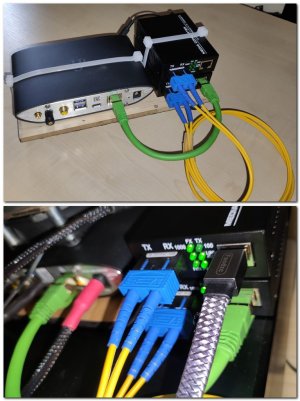Would you like to explain how this current leakage affects ethernet UTP connection, which is differential and lacks grounding, considering also the fact that ethernet specification requires isolation transformers to be used?
No, because I never said it did.
I think you've just illustrated exactly what I'm getting at, that being that a "
basic understanding" (italics to denote condescension) of networking does not reveal all aspects of everything that might impact audio performance.
AC leakage current is a real thing, and long recognized by industry, medical, measurement fields etc... for our "science expert" crowd to just dismiss it en masse as meaningless because a company they don't happen to like (e.g. iFi) offers an Ethernet isolation device is completely absurd.
Additionally, I knew a likely reply to me here would involve someone jumping to the conclusion that I didn't know the Ethernet spec requires the use of isolation transformers on every port. Are we to believe these cheap little magnetics found in a typical switch or router are always perfect?
You are not saving the audio world by arguing this sort of thing, nor could you possibly have any idea of all the different home LAN permutations involved, all of the different connections and connected equipment, whether or not shielded Ethernet cables are in use and thus contributing to to a potential issue, or how many cheap as chips SMPS devices could be contributing to a deterioration in sound quality. Mean Well publishes a rating for AC leakage current on their spec sheets, but most others do not... gee I wonder why, could it be that not all SMPS are exactly the same?
Let's leave iFi out of the equation, what if someone wanted to see if they perceive a sonic difference for the better after installing a
Baaske MI1005, or
EMO Systems EN-70HD... fool's errand complete with accusations of snake oil, or do we only reserve that for the likes of iFi?
How about surge protection, is it OK for someone to use one of these devices both for the isolation and the concurrent surge protection that provides, say for example the ISP's lines are hit by lightning and no one has inspected their safety GND in years, like a large cable TV operator in the U.S. for example, is the use one of these devices as a last line of defense against surges up to 5kV also pure folly?
If AC leakage current can be thought of in some ways similar to a ground loop, and that loop easily broken with the use an isolation device with additional add-on benefit of surge protection, must those employing such a solution (above and beyond what is found in any typical switch or router) be chastised and given directions to books by Ott to read?

